Last Updated on 3 months ago by Michael William
Prepare to immerse yourself in a world of magic and history with Egypt Tourz Company. Let your imagination run wild as you read this article, and let us turn your dreams into amazing journeys to explore the beauty of ancient Egyptian civilization
Introduction: A Journey Through Time to the Divine World of Ancient Egypt
Welcome to the amazing world of Ancient Egyptian gods! It’s no wonder these divine beings have captivated our imaginations for centuries, with their rich and diverse pantheon. From Ra, the god of the sun and creation, to Anubis who oversees embalming rituals in preparation for the afterlife – each deity has a unique role to play in this ancient culture. In this comprehensive guide, we’ll explore 10 of these powerful deities so you can gain insight into how they impacted everyday life in Egypt. So get ready – it’s time to embark on an incredible journey through history!

1- The Mighty Ra: The Supreme Sun God
Ra was an incredibly important figure in ancient Egyptian mythology. As the sun god, he held a preeminent position among the gods in their divine pantheon. He is credited with having created all that exists and his power over creation was unmatched. Every morning, Ra would ascend into the sky on his journey across it to bring light and warmth to those below him on Earth’s surface. When night fell, he descended into the underworld where he fought against chaos and darkness until morning came again when his daily cycle began anew. His role as both creators of life and protector from danger made Ra one of Egypt’s most beloved deities for centuries!

2- Isis: The Great Mother and Goddess of Magic
Isis was a beloved and powerful figure in ancient Egyptian mythology, revered for her role as the goddess of motherhood, magic, and fertility. She used her cunning and magical abilities to protect her family—namely Osiris, the god of death and resurrection whom she married—and ensure the stability of cosmic order. As the mother of Horus who would eventually become Egypt’s divine ruler after his father’s death at Set’s hands, Isis played an integral part in this story. Her power is still remembered today as an example of strength through adversity that has inspired many people over time!

3- Osiris: The Lord of the Afterlife and Symbol of Resurrection
Osiris is an incredibly important figure in Egyptian mythology and religion. He was the first divine ruler of Egypt and was considered a symbol of the cycle of life, death, and rebirth. His tragic death at the hands of his brother Set left a lasting impression on ancient Egyptians as it provided them with the hope that there could be resurrection after death. Osiris then became a judge over those who had passed away in the afterlife. This story has been told throughout generations to come as it provides comfort to many people even today!
Read more: Ancient Egyptian Sarcophagi let’s Uncovering Amazing Mysteries
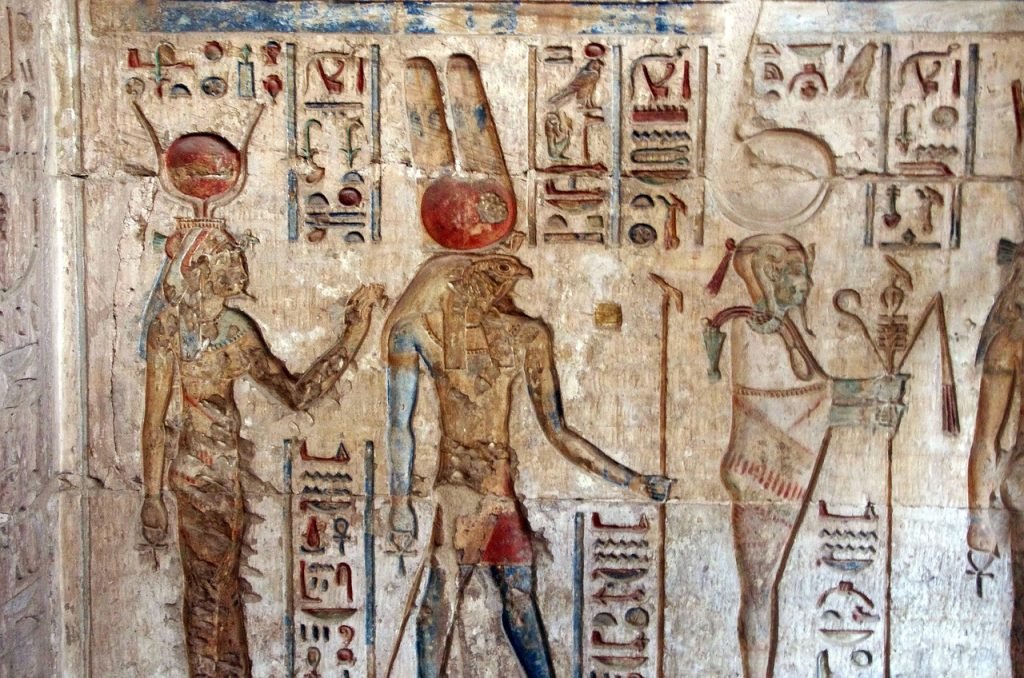
4- Amun-Ra: The King of Gods and Patron of Thebes
Amun-Ra, the fusion of the sun gods Ra and the creator god Amun, emerged as the supreme deity during the New Kingdom period. As the king of gods and the patron of Thebes, Amun-Ra was revered for his omnipotence and connection to the sun. Temples dedicated to Amun-Ra, such as the famous Karnak Temple, were built to honor his greatness and power.
“As you continue reading, remember that Egypt Tourz can turn all your imaginations into tangible reality, with continuous support and expert guides to ensure your comfort. Don’t miss the opportunity to take advantage of our exclusive discounts for individuals and groups. Contact us to learn more.”
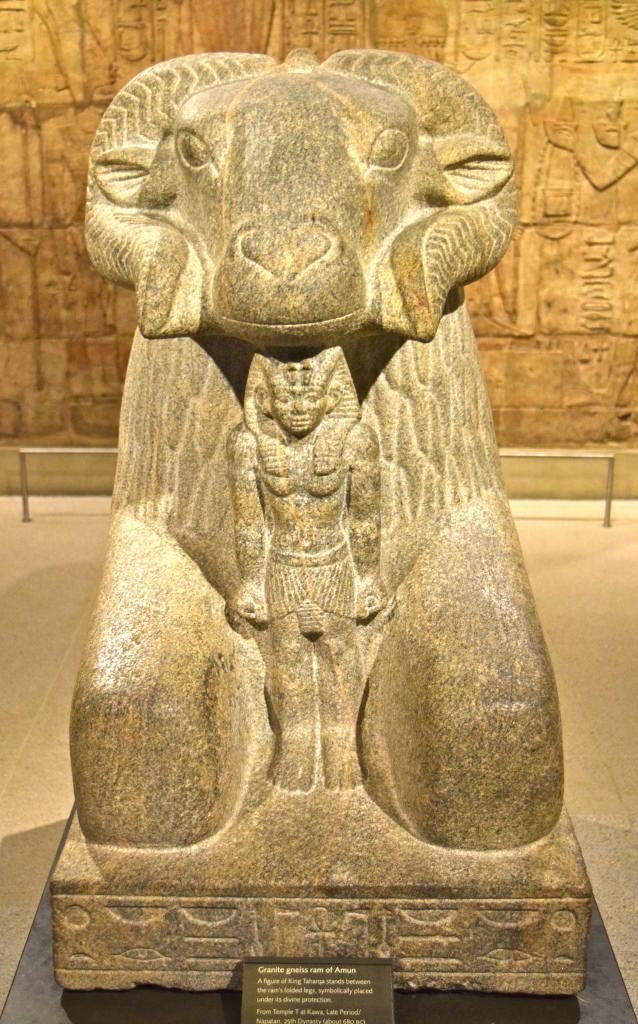
5- Horus: The Falcon-Headed Sky God and Protector of Egypt
Horus, the falcon-headed sky gods, was an important figure in Egyptian mythology. He represented divine kingship and was the son of Isis and Osiris. His story is one of tragedy and triumph as he avenged his father’s death by defeating Set to reclaim the throne for Egypt. As a protector of pharaohs and an embodiment of divine order, Horus has come to represent power, justice, and strength – all things that any ruler would strive for!

6- Set: The God of Chaos, Storms, and the Desert
Set was an incredibly complex and powerful god in Egyptian mythology. Despite being portrayed as a villain for murdering his brother Osiris, Set was also seen as the protector of the desert and the god of foreign lands. His chaotic nature made him unpredictable but also respected for his fierce power. He is certainly an interesting figure to learn about, and it’s no wonder why he has been so controversial throughout history!
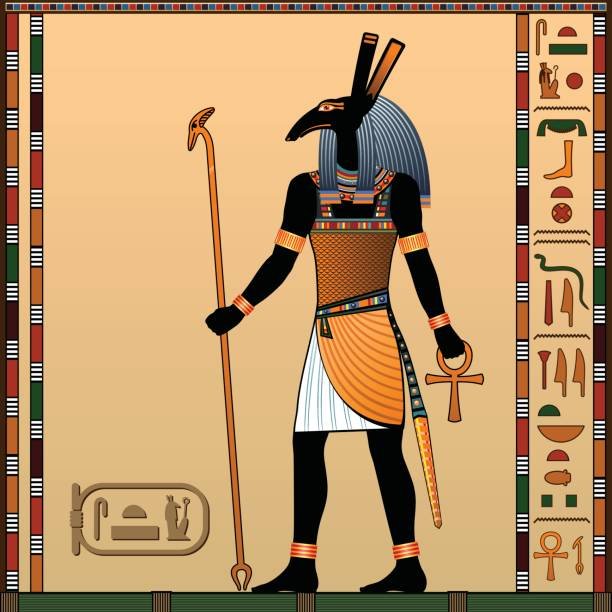
7- Anubis: The Jackal-Headed God of Mummification and the Afterlife
Anubis, the jackal-headed gods, was an important figure in ancient Egyptian mythology. He served as both the guardian of the dead and the god of mummification. Anubis had a crucial role to play in preparing deceased souls for their journey to the underworld and leading them through it safely. His presence ensured that those who passed away were able to make it beyond death without any problems or obstacles along their path. As such, he is remembered today as a symbol of protection from danger even after life has ended – something we can all be grateful for!

Read also: Lost Technologies of Ancient Egypt: Best Unearthed Wonders
8- Hathor: The Cow Goddess of Love, Music, and Joy
Hathor was a beloved goddess in the ancient Egyptian pantheon. She represented love, music, and joy – all things that bring people together. Her depiction as a cow or woman with cow horns symbolized fertility and motherhood, while her joyful demeanor made her popular at festivals and celebrations throughout Egypt. People were drawn to Hathor’s positive energy which brought a lightness of spirit during difficult times. It is no wonder why she remains an iconic figure in mythology today!
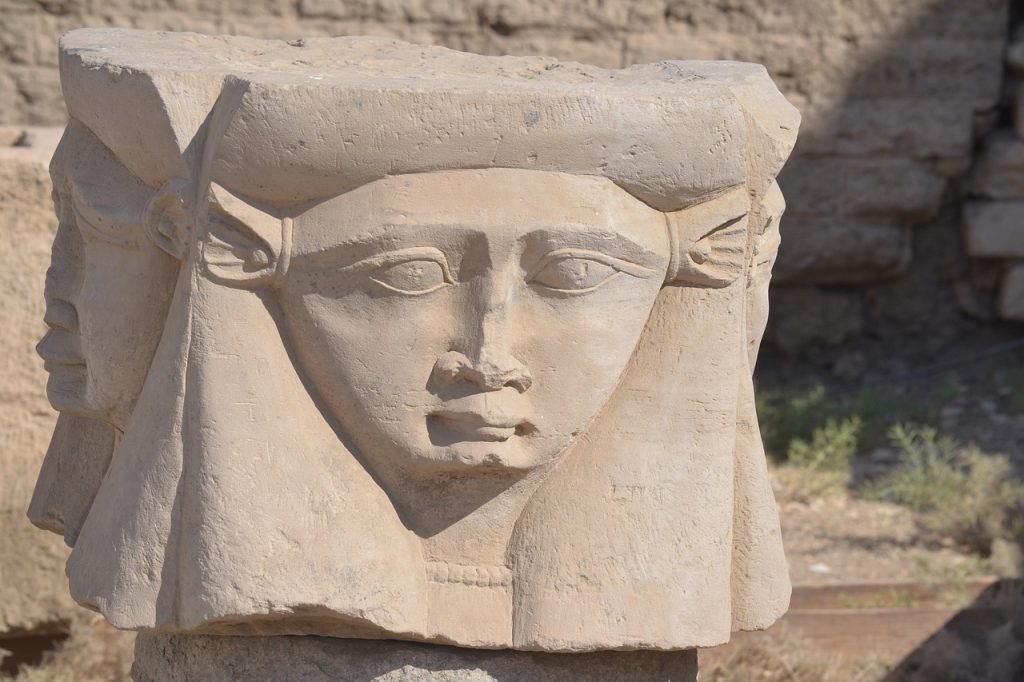
9- Thoth: The Ibis-Headed God of Wisdom and Writing
Thoth, the ibis-headed god of wisdom and writing, was the divine record-keeper and the patron of scribes. As the god of knowledge, Thoth played a pivotal role in the development of Egyptian civilization. He was credited with the invention of writing and was believed to have authored the sacred texts that preserved the wisdom of the gods.

10- Ma’at: The Goddess of Truth, Justice, and Cosmic Order
Ma’at was an incredibly important goddess in Ancient Egyptian religion, and her role in maintaining the cosmic order of the universe cannot be overstated. She embodied truth, justice, and balance – three principles that were essential for ensuring harmony between all living beings. Her presence ensured that even gods had to adhere to a set of moral codes and laws which kept them accountable for their actions. Ma’at’s influence on society was so great that it became part of everyday life; people would strive to live by her values as they sought stability, peace, and prosperity in their lives. Through Ma’at’s dedication to upholding these fundamental principles, she helped keep Egypt safe from chaos throughout its long history!
“Don’t wait any longer! Book your trip with us today and prepare for an unparalleled travel experience. Contact us or book through our website and take advantage of our special offers.”

Conclusion: The Enduring Legacy of the Most Powerful Egyptian Gods
The ancient Egyptian gods have captivated us for centuries with their compelling stories and powerful symbolism. From Ra, the sun god, to Anubis, the god of death and mummification; each of these ten deities has a unique place in Egyptian mythology. By studying their tales we gain an understanding of what was important to this ancient civilization: love, power, wisdom, and betrayal all play a role in shaping our view of life today. We can also use them as inspiration when looking at our own lives – by taking lessons from these timeless stories we can strive to become better versions of ourselves. The legacy left behind by these gods will continue to inspire generations for years to come!

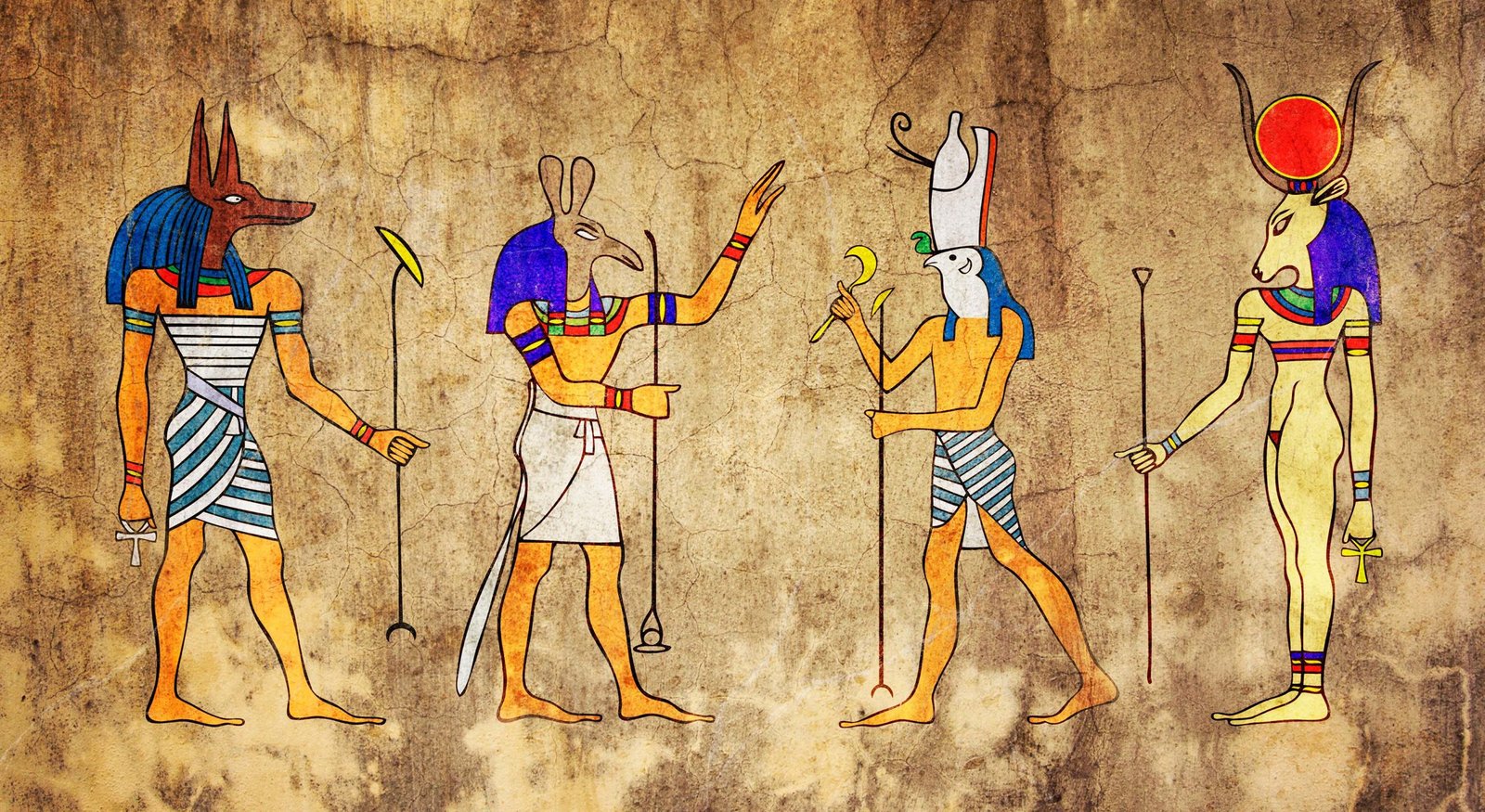
That post is absolutely fantastic. I appreciate you.
Thanks, David
wonderful information
This really helped me with my project!!!
This really helped me with my project!!!
This really helped me with my project!!! It was super helpful thanks 🙂
Thank you! Helped me so much
This was wonderful information I have been looking for information about the Egyptian God’s and Goddesses for my study about Egyptian culture and the Christian culture